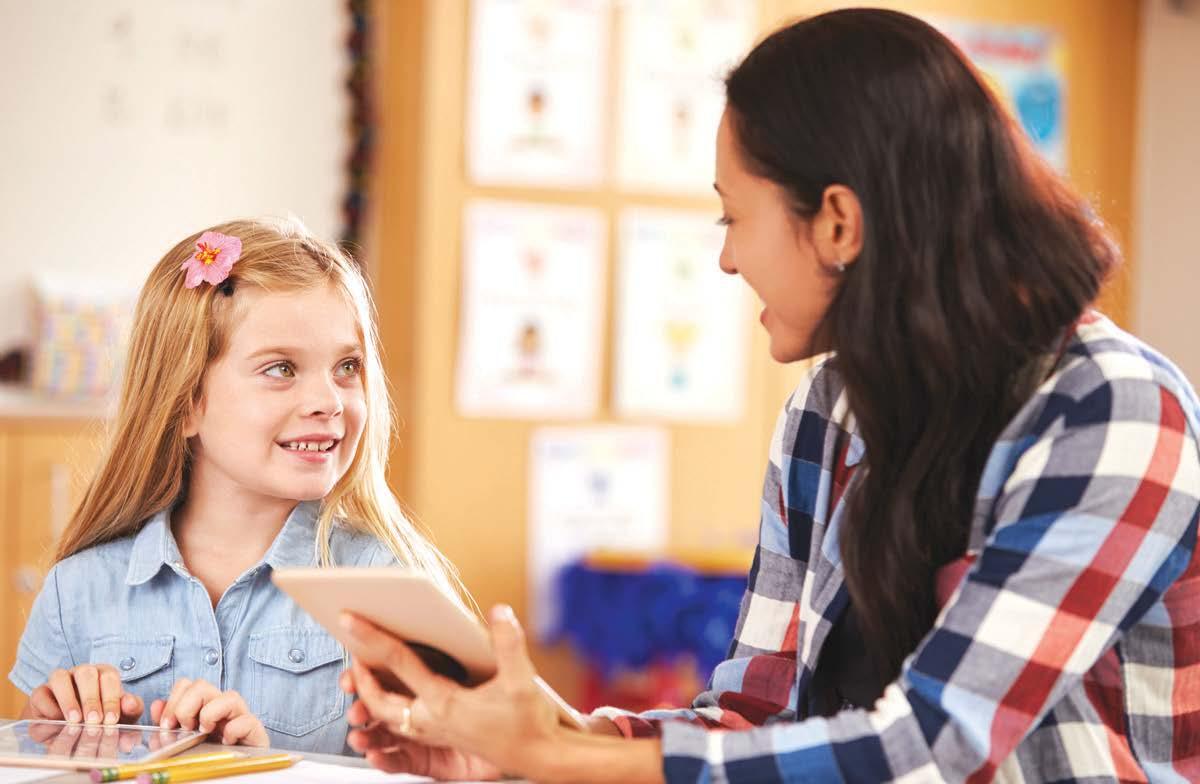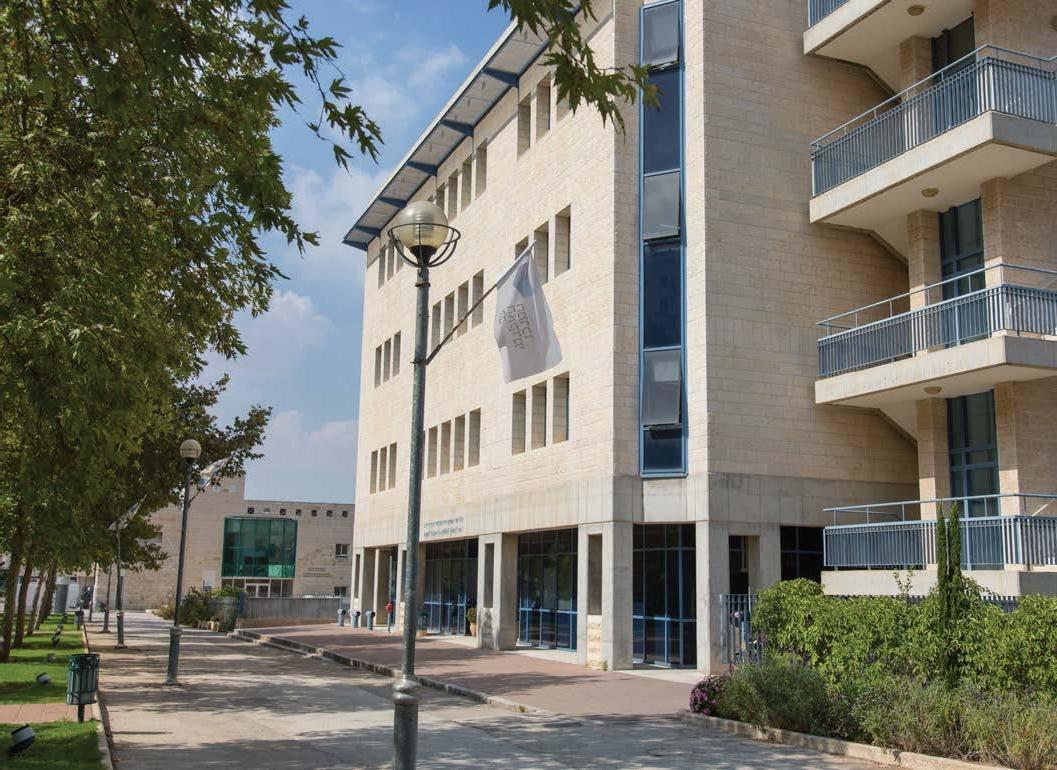
7 minute read
Parenting Pearls
Meet Your Team
By Sara Rayvych, MSEd
Advertisement
Welcome to the team! You and your child are part of a highly skilled educational team. Today’s schools are not only filled with professional educators but also with highly trained therapists and other related service providers. Education and the related therapies have come a tremendous way in recent years. Sadly, previous generations never had access to the amazing opportunities our children have to help them reach their potential in every area.
With all of these opportunities can come a lot of confusion for parents. The various providers, what they do, and how they interact can overwhelm most people. Many therapists cover areas you wouldn’t expect, and there can be lots of crossover when they work together.
This crossover is intentional. The various therapists work together with your child’s teacher as a team to give your child the best they can provide. Think of it like a delicious cholent; while there are certain basic ingredients, each dish has unique additions. While you can’t always tell each ingredient apart, they all merge to make something complete. You can feel comfortable knowing that these professionals have advanced certification, hours of supervised, practical experience, and/or mandated testing before they can use their professional titles.
All services are provided confidentially. Your child’s therapists have similar confidentiality requirements as any medical provider, and you should be comfortable speaking with them. As the parent/guardian, you are an integral part and should feel involved in every step of the process. You are an unsung hero in this partnership, and your role can’t be overstated. Think of yourself as the coach.
General Education
Whether your child has a rebbi, a morah, a teacher or all three, this is your child’s general education teacher. This is who stands in front of the class and teaches the daily curriculum. This is the name you spend the summer waiting to hear.
Every child in a regular yeshiva classroom has a general education teacher. There are various levels of training and certification this teacher can have. This teacher will teach your child the overwhelming majority of their education and guide them in classroom interactions.
Many kids will never need more than this one rebbi or morah or teacher. For those who do, please continue reading.
The Game Plan
The IEP or IESP (Individualized Educational plan) is the basic document that details what services or therapies a child qualifies for and how often they receive those services. Other details will include whether each therapy is 1:1 (one on one) or if your child will receive their therapy in a peer group. If your child requires testing accommodations (such as extra time), this will be included, as well. There will be goals listed for your child. Obviously, each therapist uses their own techniques and clinical judgement but these are the overall goals to aim towards.
The goals and testing accommodation are unique for each child, and no two IEP documents look the same.
It’s important to keep a copy of your child’s IEP. Personally, I even maintain copies of old ones. Even though the document is rewritten every year or two, the old ones, while not currently legally binding, are a legal record of your child’s needs. Many parents of high schoolers have used these former documents as proof for extended time or other accommodations on the SAT or other high stakes testing. For obvious reasons, many places don’t want to give accommodations to a student with no prior history of need or disability. On the other hand, they’re more than happy to accommodate any child who has a documented history of prior accommodations.
I’d like to include a word of caution about the IEP and the accompanying reports. As the parent, you are entitled to the full reports of how your child did in each evaluation. For children who require services, these reports are written to highlight your child’s needs, weaknesses and explain their need for services. They can depress even the most optimistic parent. Read them with the awareness of their purpose, and remember that your child is far more amazing than any report will show.
Special Education
While we may associate the special education teacher with a special needs’ classroom, these teachers also may serve as resource room teachers and even general education teachers. In addition to their regular training, there are other advanced certification add-ons, such as reading specialties, that these providers can have.
Special education teachers are specially trained to teach and assist children with a wide variety of educational needs and learning disabilities. They have a variety of creative tools at their disposal to help each child and learning style. They will work with your child on their reading, math, and other skills and help them understand whatever is challenging them in the main classroom.
Shadows
Some children will qualify to have someone in the classroom who stays in the background but is there whenever that particular child needs. A shadow can prompt a child to stay focused, cue them throughout the day, and help the child become more independent and appropriate within the classroom setting.
Speech Language Pathologists
This is the fancy, but accurate, way to refer to a speech therapist. I’ve often been surprised by the breadth that speech therapists cover. We often associate speech therapists with verbal language, but they are also professionally trained to assist children who have issues with expressing themselves in writing.
Speech therapists are the ones that specialize in all forms of expressive and communicated language, no matter the means. They help children with everything from trouble enunciating words/sounds to difficulty speaking or writing complete thoughts.
Occupational Therapist
Occupational therapists are often referred to as “OTs” to make life simpler.
Occupational therapy is actually a division of the health and medical
fields. These therapists are trained to assist your child in a variety of areas. While many parents know to associate occupational therapy with fine motor skills, few people realize the vast range of disabilities that OTs are trained to work with. An OT will often be called in when a child has something that gets in the way of their learning or has trouble with daily skills. They cover everything from trouble with shoelaces to visual perception issues.
Physical Therapy
Physical therapists work with gross motor skills, balance, and coordination. They help ensure your child is physically at their best and able to function in their daily life.
School Psychologist or Social Worker
They are the underappreciated members of the school’s team. I’ve personally seen the difference these specially trained providers can make when a family is in crisis or a child is struggling. School psychologists function in many roles, from testing children to making sure their emotional needs are being met.
Assistive Technology
This is not a provider but equipment that some children will qualify
Medical and Mental Health Professionals
We can’t forget the role pediatricians, psychiatrists, specialized medical providers (such as ophthalmologists), and mental health providers contribute to a child’s development. Whether it’s medication, emotional support, hearing aids or glasses,
for. While there is highly sophisticated equipment available to meet a variety of special needs, most general education students won’t require that level. Simple Chromebooks or laptops, often equipped with special software, can help children with a variety of writing, spelling and other issues. these providers will want to make sure your child has all they need to succeed in the classroom. They, too, will work as part of your child’s team. I was trained to always ensure a child had a recent hearing and vision test as part of their special education workup.
Your child’s physical health is no less important in their success.
Our Star Player
We saved the most important teammate for the end. The star player is your child. It’s through their hard work (trust me that they’re working hard) that your child is reaching each goal. It can be challenging, and it can be painful to do what they do each day but knowing you recognize their challenges can make the difference in their success.
Appreciate what they’re going through, acknowledge their struggle, and greet them with an extra hug at the end of the day.
Sara Rayvych, MSEd, has her master’s in general and special education. She has been homeschooling for over 10 years in Far Rockaway. She can be contacted at RayvychHomeschool@gmail.com.
JoiN our virtual oPeN houSe 1PM eSt SuNday, MarCh 7, 2021 For more info and to register visit www.jct.ac.il/international


Siona Margrett Program Coordinator siona@jct.ac.il
Gavriel Novick Program Coordinator gnovick@jct.ac.il










